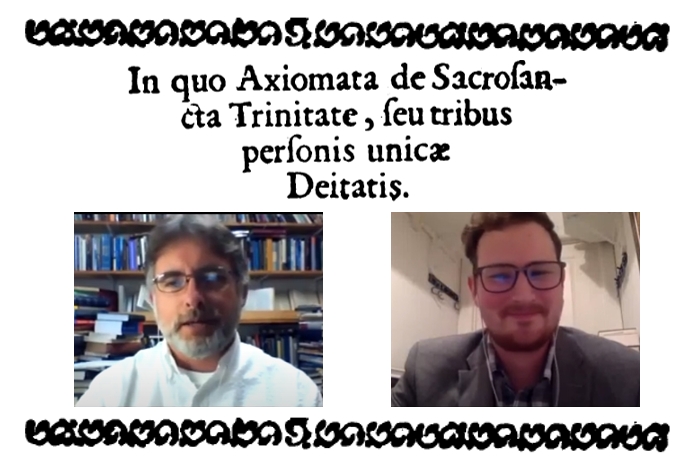
In these two axioms, Polanus teaches how to think about God in terms of essence and relation. One of the tricky parts of this is that essence and relation are two different ways of talking about the same thing in God, which is God.
Several times now, Polanus has succeeded in bringing us face to face with the fact that while each person of the Trinity is really distinct from the others, none of them is distinct from the divine essence. The most helpful way to see why this matters is to try to picture how the Father stands in real relation to the Son, but does not stand in that kind of relation to the divine essence. Nobody wants that.
Here’s the translation:
Axiom 10. In God, relation and divine essence are the same in reality. One and the same divine essence is identical to paternity, filiation, and procession through [passive] spiration.
Axiom 11. The relations of the persons differ really between themselves; and they differ merely formally from the essence, but not really from the essence.
Gabriel Biel:
“In God, there exists nothing really beyond the essence, the relation and the person constituted out of the essence and relation; and what is constituted from essence and active spiration; and all these things are identified with the essence. Thus, in God no things are distinguished essentially, because all that are in God are the one, indivisible, absolutely simple essence. Opposed relations are really distinguished between themselves, not from the essence. And so those things constituted by opposed relations (i.e., the supposita or persons) are really distinguished. For the distinction of the things constituted is of a piece with the distinction of the constituting principles. In like manner, the things constituted and the relations are distinguished formally from the essence. Likewise, the relations are distinguished formally from the things constituted by them. And again, thus it is for the disparate relations [more correctly, they ought to be called “diverse”] i.e., the relations which are not opposed: e.g. paternity and active spiration. In the same way filiation and active spiration are only formally distinguished from each other, not really. Relation is also really distinguished from what is constituted by the opposed relation: e.g., paternity from the Son. And beyond these things just noted, there is no distinction in God. For this reason, the rest of the things named by other terms are the same in all ways. And they all are not distinguished really, from the nature of the thing, formally, or by reason—e.g. goodness, wisdom, power, intellect, will, knowledge, love, etc. There is also no distinction of reason in God himself: for all things which are there are the thing and the supreme thing. Thing is not distinguished from thing in reason, just like reasons as such are not distinguished from reasons in reality.”
Here’s what we had to say about that:
Show notes: Gabriel Biel is hard to research online. Someday libraries will reopen, and someday I may seek the source of Polanus’ long Biel quotation. But today is not that day. It’s enough to know that it’s from Biel’s commentary on Lombard’s Sentences, was was actually Biel’s effort to explain Ockham’s trinitarian theology. And Polanus will cite Biel again in Axiom 14, so maybe we’ll have a chance to come back to him.